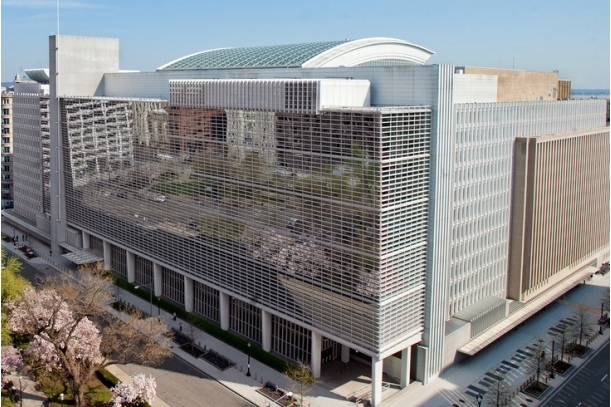Latest News
Nigeria needs reforms to accelerate growth, reduce poverty – WB report

News Highlight
In the absence of structural reforms, the World Bank has warned that the number of Nigerians living in extreme poverty could increase by more than 30 million by 2030.
The World Bank has said Nigeria needs structural reforms to mitigate risks and promote faster, and more inclusive, economic growth to improve living standards and reduce poverty in the country. The multilateral development financial institution stated this in its latest Nigeria Economic Update, released on Monday. The report provides an analysis of Nigeria's economic productivity and identifies policies and institutions that can help in accelerating economic expansion and create new job opportunities.
The World Bank said Nigeria's Gross Domestic (GDP) growth rate is estimated at 2 per cent in 2019, having achieved 0.8 per cent and 1.9 per cent growth rate in 2017 and 2018, respectively. With population growth (estimated at 2.6 per cent) outpacing GDP growth, there is the urgent need for reform, according to the World Bank report, titled "Jumpstarting Inclusive Growth: Unlocking the Productive Potential of Nigeria’s People and Resource Endowments."
While Nigeria's economic recovery continues, the World Bank said job creation is weak and per capita incomes are falling. “Nigeria’s growth outlook is vulnerable to external and domestic risks. Externally, Nigeria is confronted with a sharper-than-expected slowdown in the global economy, and geopolitical and trade tensions.” the World Bank said. “The economy’s sensitivity to volatile oil markets is a major cause of uncertainty and a disincentive to long-term investment.”
Domestic risks, according to the bank, depend on the degree of predictability of Nigeria’s macroeconomic policies, the pace of structural reforms, and the country’s security situation. The agriculture sector is still below potential because of continued insurgencies, which have displaced people and destroyed crops.
The bank said Nigeria needs reforms that can boost tax revenues to allow for higher investment in human and physical capital. The report also urged the government to reduce trade barriers and impediments to private sector development.
Without structural reforms, the bank said growth would remain at an average of 2.1 per cent during 2020–21, still below population growth rate. The implication, the bank warned, would be a scenario where, by 2030, the number of Nigerians living in extreme poverty could increase by more than 30 million.
Currently, the bank said 100 million Nigerians live on less than US$1.90 per day, close to 80 per cent of the poor are in northern Nigeria. By 2030, Nigeria could account for 25 per cent of the world’s extremely poor population.
The Nigeria Economic Update report shows that Nigeria created about 450,000 new jobs in 2018. This helped to partially offset the 700,000 jobs that were lost in the previous year. Nevertheless, Nigeria’s labour force is growing rapidly, according to the World Bank. However, the bank said quality of the available jobs has declined. "Most new jobs created in the last five years were part-time, and the likelihood of getting a full-time job is now lower than it was before the oil shock." The report compares the job creation to 2014 when 81 per cent of new jobs created in that year were full-time.
The report highlights four key policy priorities for the government. The four areas are (1) policy transparency, which is critical to reducing investment risk; (2) investment in infrastructure, liberalizing the trade regime and enhancing trade and transport facilitation; (3) reducing regulatory discretion to help attract foreign and domestic investment; and (4) improving access to finance.
Related News
Latest Blogs
- The Museum of West African Art saga
- The complexity and complication of Nigeria’s insecurity
- Between bold is wise and wise is bold
- Prospects of port community system in Nigeria’s maritime sector
- Constitutionalism must anchor discipline in Nigerian Armed Forces
Most Popular News
- NDIC pledges support towards financial system stability
- Artificial intelligence can help to reduce youth unemployment in Africa – ...
- Afreximbank backs Elumelu’s Heirs Energies with $750-million facility
- AfDB and Nedbank Group sign funding partnership for housing and trade
- GlobalData identifies major market trends for 2026
- Lagride secures $100 million facility from UBA







